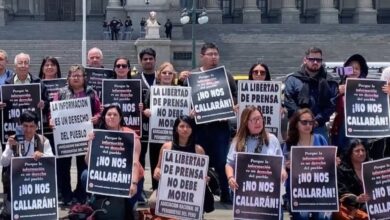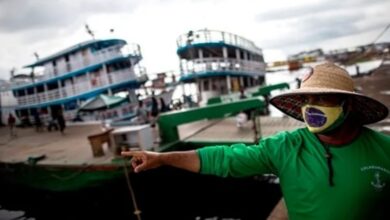Investigative journalism also suffers from the pandemic
The journalistic profession has had essential participation in the Covid-19 crisis

Investigative journalism has also been affected by the pandemic. / Photo: Unsplash
LatinAmerican Post | Karen Rodriguez
Escucha este artículo
Leer en español: El periodismo de investigación también sufre la pandemia
The role of investigative journalists and local media in relation to the Coronavirus or Covid-19 has been of utmost importance for the population to understand what a pandemic is, the reason for the physical distancing measures and the prevailing need to stay informed in prevention measures. From now on, it is essential that journalistic work breaks out of the official mold, questioning and continuing to communicate with added value the information that sometimes falls short in the traditional media.
Responsible and truthful journalism creates healthy social debate in the population and, above all, allows for greater criteria to be generated in each aspect of life in society.
However, the fakenews and disinformation records appear as a reminder of the little independence and autonomy that the journalistic profession does not have and must gain, such is its importance that many journalists that want to expose the little-informed elements of the pandemic are in danger constantly. This script seems to repeat itself in most countries, where the large state media imposes public opinion and the small local media lacks the capacity to transmit news of greater relevance and depth, such as the number of tests by region or province, the actual number of deaths, the number of tests applied, access to public services, with what level of transparency the population is informed, among other things that are of vital importance to know in the midst of the difficulties they pose on a daily basis for the continent.
Such is the case of the journalist Isabela Ponce, founder of the GK of Ecuador, who recounted the hardships at the start of the pandemic and how they had to deal with the manipulation of the real numbers of deceased people in Guayaquil. Another example is the case of Venezuela where the figures of the rapid tests are not entirely transparent, in addition to the constant violation of press freedom. The case of Nicaragua is no less frightening, the Violeta Chaparro foundation recorded 900 cases of violations of press freedom. In El Salvador there has also been an increase in the criminalization of journalistic work, José Luis Sanz, director of the El Faro website, affirms in an interview for the Journalism Blog in the Americas that they have been subject to censorship and constant threats for exercising the journalistic profession.
Also read: “Matarife”, the controversial documentary series
This places independent media and their journalists as enemies of governments, even if they play a fundamental role in the search for transparency and access to information that must be public and accessible, with an emphasis on information related to Covid-19, crippling those who practice scientific or investigative journalism. Given this scenario one of the tasks to continue developing is to denounce and expand the margin of maneuver in relation to sources and support networks among journalism professionals. In order to support this work, some international and local organizations have taken on the task of organizing webinars on how investigative journalists and scientists can reduce this curve of abuses and omissions that favor obscurantism in the population over the pandemic as well as tips for care when reporting from home or on the street, resources that contribute a lot to the trade that is almost in the first line of action together with health professionals.
The links left at the end of the article are for those who want to nurture and promote investigative journalism. It includes webinars and guidelines to face and cover this global health crisis:
The International Network of Journalists
This portal gives international access to courses, grants and technical tools related to the journalistic profession
The Global Investigative Journalism Network
The network is responsible for supporting training and exchange between investigative journalists.
Inter-American Court of Human Rights
International freedom of expression standards are shown here.
The International Foundation for Women in Media
This foundation supports, protects, and recognizes the role of women in journalism.
The Knigth Center, Journalism in the pandemic: Covid-19 coverage now and in the future
In addition to the blog of the Americas, they carry out specialized courses to develop inclusive leadership in newsrooms around the world.
Gabo Foundation
Independent institute that promotes ethical and rigorous journalism in the region.




